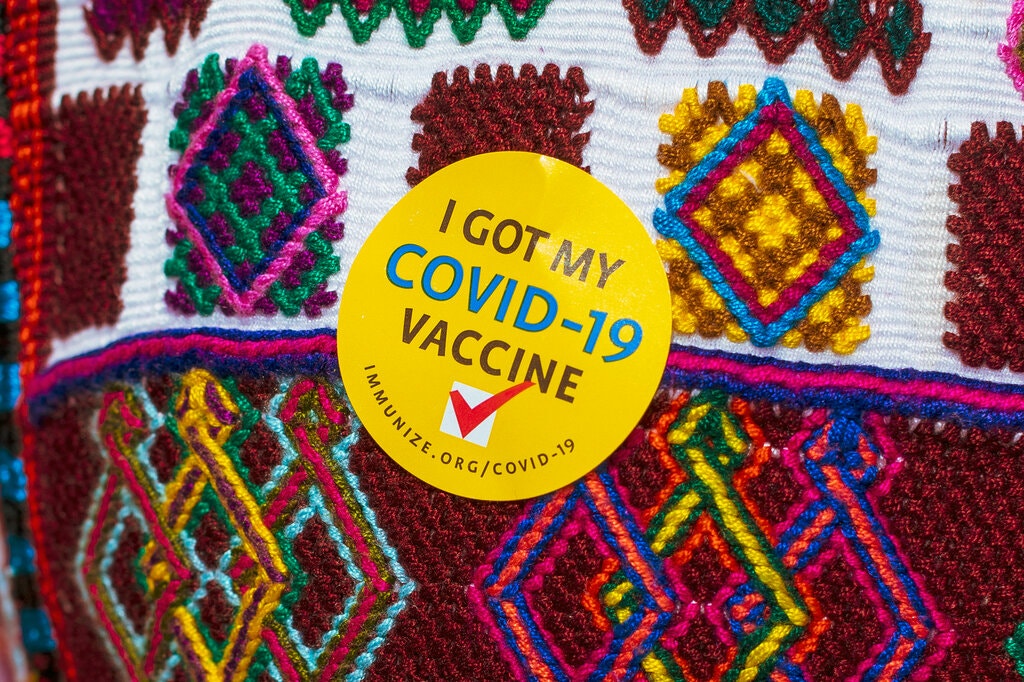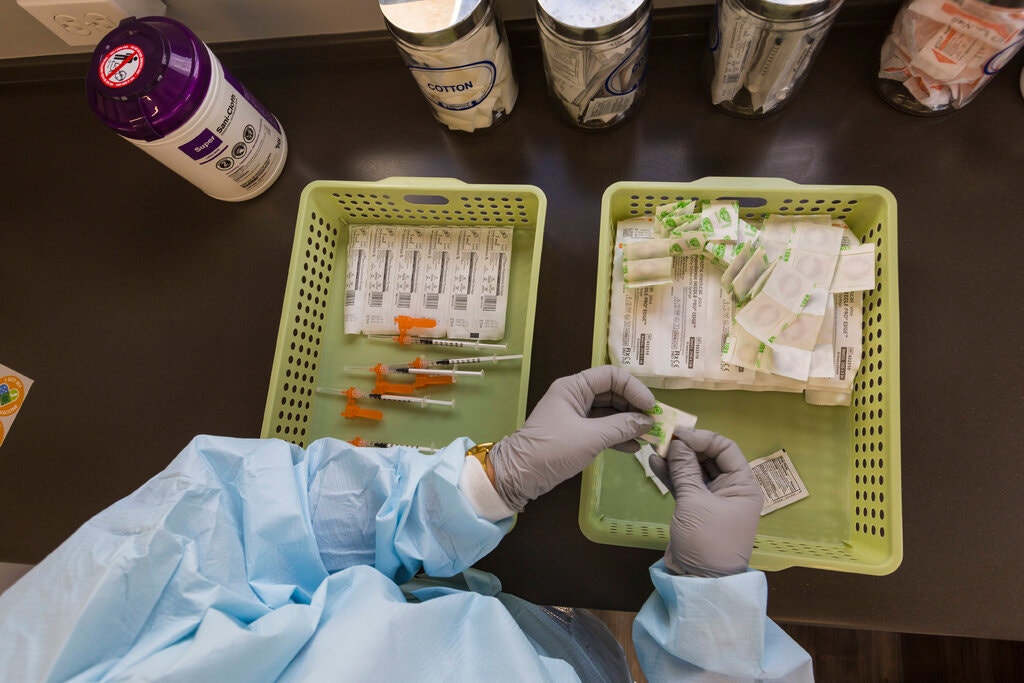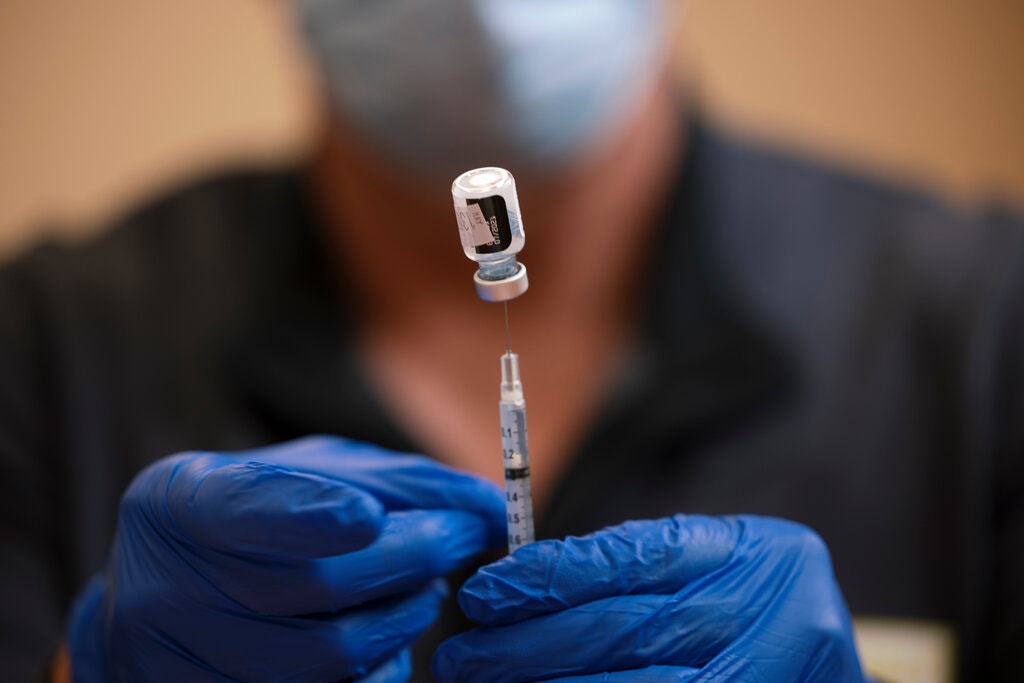We’ll Probably Need Booster Shots for Covid-19. But When? And Which Ones?
Scientists are asking a lot of questions about Covid-19 booster shots, but they don’t yet have many answers. Here’s what they know so far.
For now, scientists are asking a lot of questions about Covid-19 booster shots, but they don’t yet have many answers. The National Institutes of Health recently announced that it has begun a new clinical trial of people fully vaccinated — with any authorized vaccine — to see whether a booster of the Moderna shot will increase their antibodies and prolong protection against getting infected with the virus.
Although many scientists estimate that the Pfizer-BioNTech, Moderna and Johnson & Johnson vaccines authorized in the United States will last at least a year, no one knows for sure. It’s also unclear whether emerging variants of the coronavirus will change our vaccination needs.
“We’re in uncharted waters here in terms of boosters,” said Dr. Edward Belongia, a physician and epidemiologist at the Marshfield Clinic Research Institute in Marshfield, Wis.
Why do we have to get a flu vaccine every year, but two measles shots during childhood can protect us for life?
Different pathogens affect our immune system in different ways. For some diseases, like the measles, getting sick once leads to lifelong protection from another infection. But for other pathogens, our immune defenses wane over time.
And sometimes the virus itself can change, creating a need for a booster to produce a new, tailored defense. Influenza viruses are so mutable that they require a new vaccine every year.
How do Covid-19 vaccines stack up against others in terms of protection?
The short answer is that we can’t be sure yet, since people started getting vaccinated in large numbers only a few months ago.
“Even in the trials, we don’t know what the immune response is a year out,” said Dr. Kirsten Lyke, a vaccine expert at the University of Maryland School of Medicine and a leader of the N.I.H.’s booster trial.
But early signs are encouraging. Researchers have been drawing blood from volunteers in vaccine trials and measuring their levels of antibodies and immune cells that target the coronavirus. The levels are dropping, but gradually. It’s possible that with this slow rate of decline, vaccine protection will remain strong for a long time. People who were previously infected and then received the vaccine may enjoy even more durable protection.

Will some Covid vaccines last longer than others?
Possibly. Scientists have already found that vaccines using different technologies can vary in their effectiveness. The strongest vaccines include Moderna and Pfizer-BioNTech, both of which are based on RNA molecules. Vaccines relying on inactivated viruses, such as those made by Sinopharm in China and Bharat Biotech in India, have proved somewhat less effective.
How will we know when our vaccines are losing their effectiveness?
Scientists are searching for biological markers that could reveal when the protection from a vaccine is no longer enough to hold back the coronavirus.
Some preliminary studies suggest that these markers — known as correlates of protection — exist for Covid-19 vaccines. Research is underway to find them.
What about the variants?
We may very well need boosters to block variants, but that’s not clear yet.
The emergence of variants in recent months has accelerated research on boosters. Some variants have mutations that led them to spread swiftly. Others carry mutations that might blunt the effectiveness of authorized vaccines. But at this point, scientists still have only a smattering of clues about how existing vaccines work against different variants.
“It’s clear that variants are inevitable,” said Dr. Grace Lee, associate chief medical officer for practice innovation and infectious diseases physician at Stanford Children’s Health. “I think the question is, how impactful are they going to be?”

Would we need a special booster tailored for a particular variant?
It’s not clear yet. Some scientists suspect that a high immune response to the original version of the coronavirus will provide sufficient protection against variants as well. But it’s also possible that a vaccine designed to thwart one variant in particular may be more effective.
Can I switch my vaccine brand when I get a booster?
Possibly. In fact, a lot of research on other diseases suggests that switching vaccines can strengthen boosters. “This is a tried and true concept from before Covid,” Dr. Lyke said.
Dr. Lyke and her colleagues are testing this mix-and-match option for boosters as part of their new trial. All of the volunteers are receiving a Moderna booster. The researchers will then observe how strong of an immune response it produces.
The N.I.H. trial may start delivering results as soon as the next few weeks. If fading vaccines and surging variants create a burst of new infections this winter, Dr. Lyke wants to have data that she can share with policymakers.
What about all of the people who haven’t gotten their first doses yet?
Dr. Hensley says it’s wise to prepare for the possibility that boosters will be needed. But he hoped that they didn’t become a distraction from the pressing need to get first doses to billions of people across the world.
“If more people get protected right away, then the virus will have fewer hosts to infect and less opportunity to evolve into new variants,” he said.



